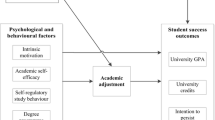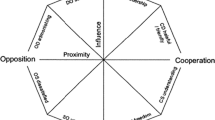Abstract
Student-centered learning (SCL) has entered center stage on the European higher education (HE) policy agenda after the Yerevan Ministerial Summit of the European Higher Education Area (EHEA) in May 2015. It has become the key principle underlying the intended reforms toward enhancing the quality of teaching and learning in European HE. Despite the universal appeal, SCL remains poorly defined in policy documents and this ambiguity potentially jeopardizes its implementation. The article addresses the different instances and evocations of the SCL approach in EHEA policies. Furthermore, it seeks to clarify the conceptual foundations of SCL. Two propositions are put forward. First, SCL should be understood as a ‘meta-concept’. Such an understanding serves as a corrective to the eclectic use of SCL in association with a broad variety of policy issues. Second, the article questions the suitability of student engagement as a conceptual foundation of SCL. The main argument is that student engagement conceptually fails to sufficiently address student autonomy, self-regulation and choice, all of which have been highlighted by the literature as essential elements of SCL. The root concern of SCL is not propensity to different types of student action as implied in student engagement, but rather student agency as students’ capabilities to intervene in and influence their learning environments and learning pathways.
Similar content being viewed by others
References
Ashwin, P. and McVitty, D. (2015) ‘The Meanings of Student Engagement: Implications for Policies and Practices’, in A. Curaj, L. Matei, R. Pricopie, J. Salmi and P. Scott (eds.) The European Higher Education Area: Between Critical Reflection and Future Policies, Dordrecht: Springer, pp. 343–359.
Bandura, A. (2001) ‘Social cognitive theory: an agentic perspective’, Annual Review of Psychology 52(1): 1–26.
Berlin Communiqué (2003) ‘Realising the European Higher Education Area, Communiqué of the Conference of Ministers responsible for Higher Education’, Berlin, http://www.ond.vlaanderen.be/hogeronderwijs/bologna/documents/MDC/Berlin_Communique1.pdf, accessed 8 December 2016.
Bologna Declaration (1999) Joint Declaration of the European Ministers of Education, Bologna, http://www.ond.vlaanderen.be/hogeronderwijs/bologna/documents/MDC/BOLOGNA_DECLARATION1.pdf, accessed 8 December 2016.
Bergen Communiqué (2005) The European Higher Education Area — Achieving the Goals, Bergen, http://www.ond.vlaanderen.be/hogeronderwijs/bologna/documents/MDC/050520_Bergen_Communique1.pdf, accessed 8 December 2016.
Bourdieu, P. (1984) Distinction: A Social Critique of the Judgement of Taste, London: Routledge.
Bromley, P., Meyer, J.W. and Ramirez, F. (2011) ‘Student-centeredness in social science textbooks: cross-national analyses, 1970–2005’, Social Forces 90(2): 1–24.
Bucharest Communiqué (2012) Making the Most of Our Potential: Consolidating the European Higher Education Area, Bucharest, http://www.ond.vlaanderen.be/hogeronderwijs//beleid/Bologna/EHEA_Bucharest2012/Bucharest_Communique_2012.pdf, accessed 8 December 2016.
DBIS (Department for Business, Innovation and Skills) (2011) Higher Education: Students at the Hearth of the System, White Paper BIS/11/944, Cm 8122, London, UK: Department for Business, Innovation and Skills.
EHEA (2010) Budapest-Vienna Declaration on the European Higher Education Area, Budapest and Vienna, http://www.ond.vlaanderen.be/hogeronderwijs/bologna/2010_conference/documents/Budapest-Vienna_Declaration.pdf, accessed 8 December 2016.
EHEA (2015) Yerevan Communiqué, Yerevan, http://media.ehea.info/file/2015_Yerevan/70/7/YerevanCommuniqueFinal_613707.pdf, accessed 8 December 2016.
Emirbayer, M. and Mische, A. (1998) ‘What is agency?’, American Journal of Sociology 103(4): 962–1023.
ESU and EI (2010a) Student-Centred Learning: An Insight into Theory and Practice, Brussels: European Students’ Union and Education International.
ESU and EI (2010b) Survey Analysis Time for Student Centered Learning, Brussels: European Students’ Union and Education International.
European Commission/EACEA/Eurydice (2012) The European Higher Education Area in 2012: Bologna Process Implementation Report, Luxembourg: Publications Office of the European Union.
European Commission/EACEA/Eurydice (2015) The European Higher Education Area in 2015: Bologna Process Implementation Report. Luxembourg: Publications Office of the European Union.
European Commission (2003) The Role of the Universities in the Europe of Knowledge, COM(2003) 58 final, Brussels: European Commission.
European Commission (2005) Mobilising the Brainpower of Europe: Enabling Universities to Make Their Full Contribution to the Lisbon Strategy, COM(2005) 152 final, Brussels: European Commission.
European Commission (2006) Delivering on the Modernisation Agenda for Universities: Education, Research and Innovation, COM(2006) 208 final, Brussels: European Commission.
European Commission (2011) Supporting Growth and Jobs — An Agenda for the Modernisation of Europe’s Higher Education Systems, COM(2011) 567 final, Brussels: European Commission.
European Commission (2013) Report to the European Commission on Improving the Quality of Teaching and Learning in Europe’s Higher Education Institutions, Luxembourg: Publications Office of the European Union.
European Commission (2014) Report to the European Commission on New Modes of Learning and Teaching in Higher Education, Luxembourg: Publications Office of the European Union.
European Union (2015) ECTS Users’ Guide, Luxembourg: Publications Office of the European Union, 2015.
Geven, K. and Attard, A. (2012) ‘Time for Student-Centred Learning?’, in A. Curaj, P. Scott, L. Vlasceanu and L. Wilson (eds.) European Higher Education at the Crossroads: Between the Bologna Process and National Reforms, Dordrecht, Netherlands: Springer, pp. 153–172.
Grigsby, M. (2009) College Life Through the Eye of Students, Albany: SUNY Press.
Hall, P.A. and Lamont, M. (2009) Successful Societies: How Institutions and Culture Affect Health, Cambridge: Cambridge University Press.
Hmelo-Silver, C.E., Golan Duncan, R. and Chinn, C.A. (2007) ‘Scaffolding and achievement in problem-based and inquiry learning: a response to Kirschner, Sweller, and Clark (2006)’, Educational Psychologist 42(2): 99–107.
Kahn, P.E. (2014) ‘Theorising student engagement in higher education’, British Educational Research Journal 40(6): 1005–1018.
Kirschner, P.A., Sweller, J. and Clark, R.E. (2006) ‘Why minimal guidance during instruction does not work: an analysis of the failure of constructivist, discovery, problem-based, experiential, and inquiry-based teaching’, Educational Psychologist 41(2): 75–86.
Klemenčič, M. (2011) ‘Student Representation in European Higher Education Governance: Principles and Practice, Roles and Benefits’, in E. Egron-Polak, J. Kohler, S. Bergan and L. Purser (eds.) Leadership and Governance in Higher Education. Handbook for Decision-Makers and Administrators, Berlin: RAABE Academic Publishers, pp. 1–26.
Klemenčič, M. (2012) ‘The Changing Conceptions of Student Participation in HE Governance in the EHEA’, in A. Curaj, P. Scott, L. Vlasceanu and L. Wilson (eds.) European Higher Education at the Crossroads: Between the Bologna Process and National Reforms, Dordrecht: Springer, pp. 631–653.
Klemenčič, M. and Ashwin, P. (2015) ‘New Directions for Teaching, Learning, and Student Engagement in the European Higher Education Area’, in R. Pricopie, P. Scott, J. Salmi and A. Curaj (eds.) The European Higher Education Area: Between Critical Reflection and Future Policies, Dordrecht: Springer, pp. 323–332.
Klemenčič, M. and Chirikov, I. (2015) ‘On the Use of Student Surveys’, in R. Pricopie, P. Scott, J. Salmi and A. Curaj (eds.) The European Higher Education Area: Between Critical Reflection and Future Policies, Dordrecht: Springer, pp. 367–386.
Klemenčič, M. (2015a) ‘What is Student Agency? An Ontological Exploration in the Context of Research on Student Engagement’, in M. Klemenčič, S. Bergan and R. Primožič (eds.) Student Engagement in Europe: Society, Higher Education and Student Governance, Council of Europe Higher Education Series No. 20, Strasbourg: Council of Europe Publishing, pp. 11–29.
Klemenčič, M. (2015b) ‘Ahead of 2015 Bologna Ministerial Conference: a new agenda for the European Higher Education Area’, European Journal of Higher Education 5(1): 1–3.
Klemenčič, M. (2015c) ‘Student Involvement in Quality Enhancement’, in J. Huisman, H. de Boer, D. Dill and M. Souto-Otero (eds) The Handbook of Higher Education Policy and Governance, London: Palgrave Macmillan, pp. 526–543.
Kuh, G.D. (2001) ‘Assessing what really matters to student learning: Inside the national survey of student engagement’, Change: The Magazine of Higher Learning 33(3): 10–17.
Land, S., Hannafin, M. and Oliver, K. (2012) ‘Student-Centred Learning Environments: Foundations, Assumptions and Design’, in D. Jonassen and S. Land (eds.) Theoretical Foundations of learning environments 2nd edition, New York and Abingdon: Routledge, pp. 1–25.
Langworthy, M., Shear, L. and Means, B. (2010) ‘The Third Lever: Innovative Teaching and Learning Research’, in OECD (eds.) Inspired by Technology, Driven by Pedagogy, Paris: OECD, pp. 105–124.
Luescher-Mamashela, T.M. (2012) ‘Student representation in university decision making: good reasons, a new lens?’, Studies in Higher Education, first published online 13 January doi:10.1080/03075079.2011.625496.
Leuven Communiqué (2009) The Bologna Process 2020 -The European Higher Education Area in the new decade’, Leuven, http://ond.vlaanderen.be/hogeronderwijs/bologna/conference/documents/Leuven_Louvain-la-Neuve_Communiqu%C3%A9_April_2009.pdf, accessed 8 December 2016.
London Communiqué (2007) Towards the European Higher Education Area: Responding to Challenges in a Globalised World, London, http://www.ond.vlaanderen.be/hogeronderwijs/bologna/documents/MDC/London_Communique18May2007.pdf, accessed 8 December 2016.
McCulloch, A. (2009) ‘The student as co-producer: learning from public administration about the student university relationship’, Studies in Higher Education 34(2): 171–83.
Meyer, J.W. and Jepperson, R. (2000) ‘The “Actors” of modern society: cultural rationalization and the ongoing expansion of social agency’, Sociological Theory 18(1): 100–120.
Macfarlane, B. (2012) ‘Re-framing student academic freedom: a capability perspective’, Higher Education 63(6): 719–732.
Prague Communiqué (2001) Towards the European Higher Education Area, Prague, http://www.ond.vlaanderen.be/hogeronderwijs/bologna/documents/MDC/PRAGUE_COMMUNIQUE.pdf, accessed 8 December 2016.
Standards and Guidelines for Quality Assurance in the European Higher Education Area (ESG) (2005) Brussels, Belgium.
Standards and Guidelines for Quality Assurance in the European Higher Education Area (ESG) (2009) Brussels, Belgium.
Standards and Guidelines for Quality Assurance in the European Higher Education Area (ESG) (2015) Brussels, Belgium.
Trowler, V. (2010) Student Engagement Literature Review, York: UK: The Higher Education Academy.
Trowler, V. and Trowler, P. (2011) Student Engagement Toolkit for Leaders, London, UK: Leadership foundation for higher education and Higher Education Research and Evaluation.
van Andel, J., Botas, P.C.P., and Huisman, J. (2012) ‘Consumption values and empowerment of the student as customer: taking a rational look inside higher education’s “Pandora’s Box”’, Higher Education Review 45(1): 62–85.
Zimmerman, B. (2008) ‘Investigating self-regulation and motivation: historical background, methodological developments, and future prospects’, American Educational Research Journal 45(1): 166–183.
Author information
Authors and Affiliations
Corresponding author
Rights and permissions
About this article
Cite this article
Klemenčič, M. From Student Engagement to Student Agency: Conceptual Considerations of European Policies on Student-Centered Learning in Higher Education. High Educ Policy 30, 69–85 (2017). https://doi.org/10.1057/s41307-016-0034-4
Published:
Issue Date:
DOI: https://doi.org/10.1057/s41307-016-0034-4




